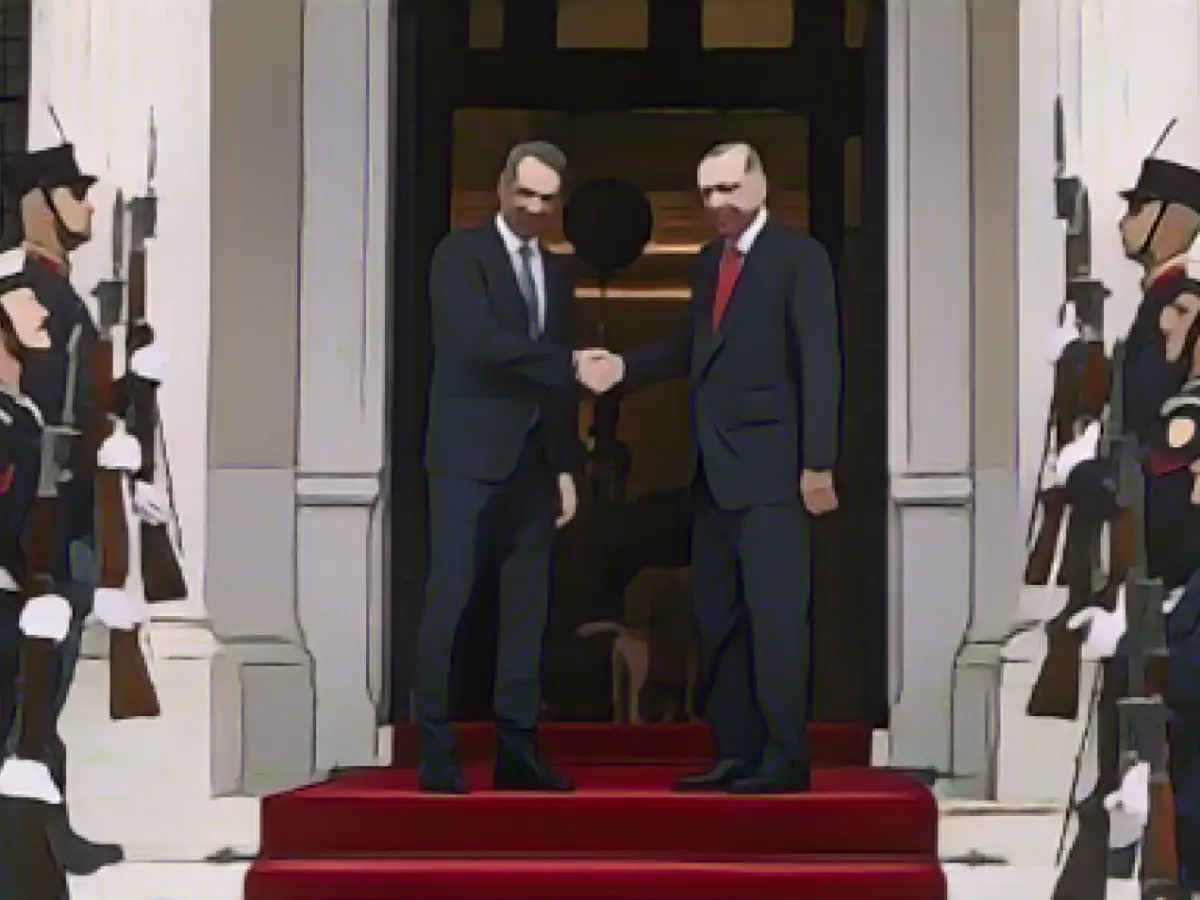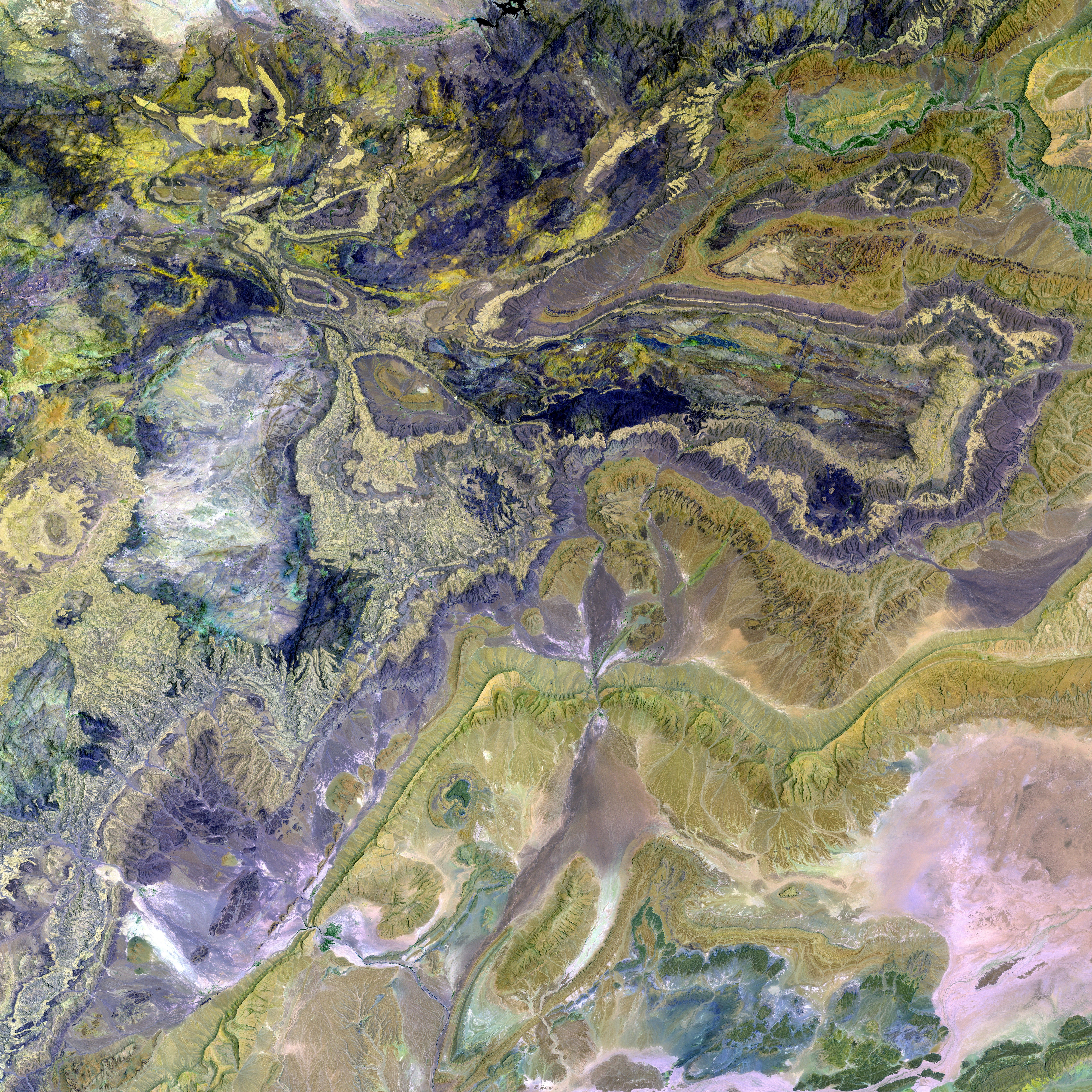"Let's Stay Positive, Buddy!": Erdogan and Greece's Optimistic Future
In a recent meeting with Greek President Katerina Sakellaropoulou, Turkish President Recep Tayyip Erdogan expressed his optimism for a new era in relations between Turkey and Greece. One of his goals was to nearly double the bilateral trade volume from its current $5.5 billion to a whopping $10 billion. Erdogan previously referred to Prime Minister Kyriakos Mitsotakis as his "buddy" in a Greek newspaper interview.
After the meeting, Erdogan confidently said that all issues between the two countries could be resolved if they focused on good intentions and a shared vision. The countries have had their fair share of tensions, particularly over maritime borders in the Aegean Sea and migration policy. However, tensions eased slightly after Greece provided aid following Turkey's severe earthquake last February.
The High Cooperation Council was set to meet again for the first time since 2016, with 16 bilateral agreements set to be signed. A diplomatic representative praised the positive steps towards a rapprochement between the two countries. Migration Minister Dimitris Kairidis also commended the cooperation between the coastguards of both countries on migration.
Erdogan and Mitsotakis spoke of a future where problems could be solved peacefully. Greece and the EU are working towards extending the 2016 refugee agreement with Turkey. While Turkey and Greece have a complex history, the prospect of improved relations is a welcome development.
Digging Deeper
The future of relations between Turkey and Greece is multifaceted, involving both diplomatic efforts and economic interdependence. Diplomatic forums, like the High Cooperation Council, have played a crucial role in shaping the dynamics of their relationship. Recent discussions at NATO headquarters and multilateral forums have underscored the need for a coordinated approach to resolve their differences.
The economic interdependence between the two nations is significant, with bilateral trade reaching approximately $5.8 billion in 2023 and projected to rise to $10 billion by the end of the decade. Joint projects in tourism, infrastructure, and energy exploration could drive mutual growth and stability, despite lingering historical grievances and territorial disputes.
Despite being NATO members, Turkey and Greece face intense rivalry over maritime boundaries and strategic visions. Recent developments suggest that continued diplomatic engagement could lead to long-term resolutions, although protectionism and trade wars pose challenges. A stable Eastern Mediterranean that benefits NATO, the EU, and the international community could be achieved if Turkey and Greece can put their differences aside.
In conclusion, while the road to improved relations between Turkey and Greece is fraught with challenges, the resumption of the High Cooperation Council and optimism expressed by both leaders point to a promising future. The potential for increased trade, tourism, and energy cooperation could benefit both countries, as well as their regional and international partners.








